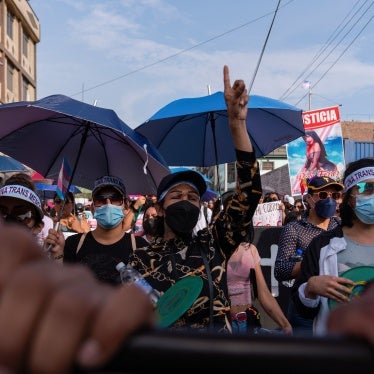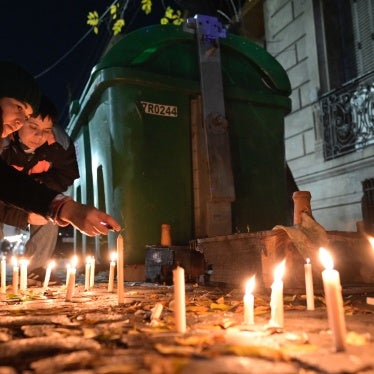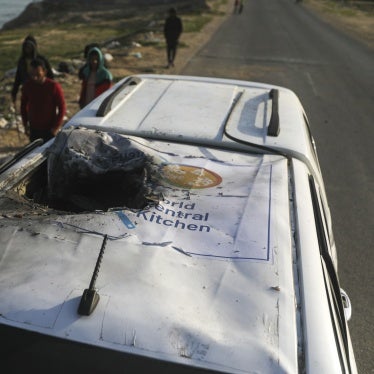In Geneva over the next two weeks, the United Arab Emirates (UAE) will play an influential role on the Governing Body of the International Labour Organisation (ILO). Yet Human Rights Watch (HRW) has documented how within the UAE migrant domestic workers are exploited by employers and recruiters, while government policies create conditions which foster abuse and forced labour.
The HRW report, “I Already Bought You”, is based on interviews with 99 female migrant domestic workers.
“Sabina” (26) moved to the UAE in February 2011. She signed a contract in the Philippines to work eight hours a day for an Emirati family with three children for US$400 per month, with room and board included.
But when she arrived the recruitment agent made her sign a statement giving up her first month’s salary to the agency. Her employer told Sabina her pay would be less than half of what she had been promised. She said her employer made her work 20 hours a day with no breaks, seven days a week, for a family of 12—who insulted and beat her.
Sabina’s employer took her passport and phone, confined her to the house and did not allow her to call her family for more than two years. Sometimes, she was only able to eat once a day.
While working, Sabina did not receive a penny. She finally escaped one day when the house was unlocked. When I spoke to her, she was trying to claim her unpaid salary for two years and seven months of work.
Other women HRW interviewed shared similar stories. Dozens described at least one condition matching ILO instances of what makes up forced labour, in which “involuntary” work is extracted under “menace of penalty”, such as threats of retaliation.
Kafala system
The UAE considers forced labour a crime—but has yet seriously to investigate and prosecute cases or tackle the conditions which allow abuse to flourish. The country’s main agency on human trafficking said in its 2013-14 report that “the UAE—with expatriates making up about 85 percent of its population—believes that labour issues should not be linked to human trafficking, and should be treated separately”.
But labour policy and trafficking are closely linked. The UAE’s visa-sponsorship system, known as kafala, ties domestic workers to individual employers for the duration of their contract, with no possibility of transfer without their employer’s consent.
Domestic workers are explicitly excluded from the UAE labour law. This system, allied to deceptive recruitment practices and exacerbated by employers typically confiscating workers’ passports, facilitates exploitative working conditions.
Under pressure, the UAE has made some reforms—on paper. In June, the authorities revised the standard domestic-worker contract to require a weekly day off and eight hours of rest in any 24. But women can thus still work up to 16 hours a day and the contract is no substitute for labour-law protections.
An unpublished draft law on domestic workers has been pending since 2012. But, according to media reports, its provisions would still fall short of protections for other workers. The authorities have reformed some aspects of the kafala system in recent years but not for domestic workers.
Entrenched pattern
The UAE responded to the HRW report by saying that, given the number of foreign workers in the country, there were bound to be cases of abuse—but “such cases do not reflect the general situation, which works to the benefit of the vast majority of employers and employees”. No statistical claims were derived from this qualitative research, but that so many women from different nationalities and in diverse settings reported similar experiences and types of abuse pointed to an entrenched pattern of violations.
Sabina’s employer was not investigated for forced labour. If she is lucky—very lucky—she might get her salary back. If not, she will go home without her salary and without justice.
The UAE has said that “it will continue to improve protections for foreign workers and engage in dialogue with their home countries to resolve issues that arise”. Key steps should include changing the visa-sponsorship system, so domestic workers can transfer to another employer without requiring the consent of an abusive one.
The government should also extend labour-law protections to migrant domestic workers to give them equal safeguards. These would need to be buttressed by inspections, so that homes where domestic workers are employed do not remain unregulated work spaces.
ILO treaties
The UAE should also ratify and implement key ILO treaties, including the 2011 Domestic Workers Convention. The newest is the 2014 Protocol to the Forced Labour Convention, adopted in June to help protect victims of forced labour like Sabina.
Now that the UAE is sitting on the ILO Governing Body, the time is ripe for it to stop denying, but rather to address, its problems with forced labour at home.







